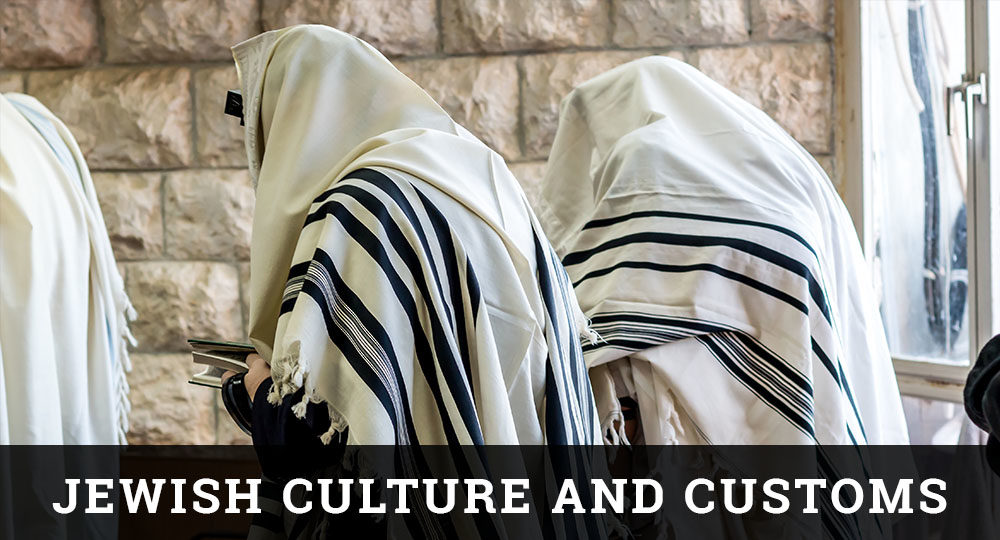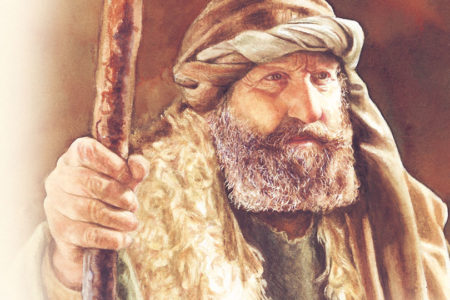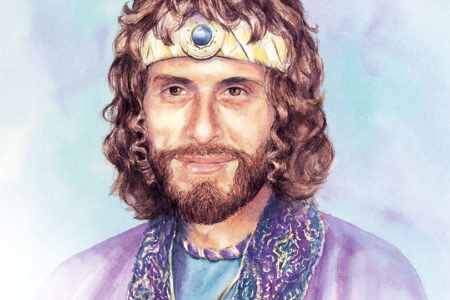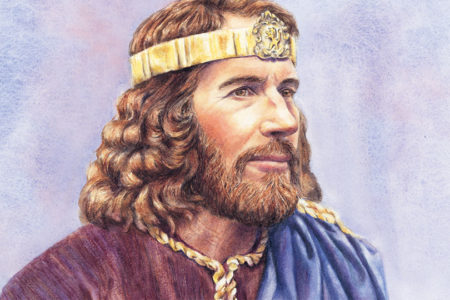Aliyah for the People of the Book
The People of the Book.” Whom do you think of when you hear that phrase, which so clearly distinguishes a specific people? Which people and what book?
The people are the Chosen People, the Israelites of old and their progeny—the Jewish people of today, the descendants of Abraham, Isaac, and Jacob.
The Book, of course, is the Bible. Its author is the God of Abraham, Isaac, and Jacob, the One who chose the Jewish people “to be a special people unto himself, above all people who are upon the face of the earth” (Dt. 7:6). And the book they hold so dear is no ordinary book. It is written on parchment, sewn together, rolled onto wooden rollers called eytz chayeem (tree of life), and read regularly in the synagogue. They call these scrolls of the Law Torahs. The word Torah comes from the verbal root that means “to guide” or “to instruct.” Jewish liturgy proclaims Torah a “tree of life to those who hold fast to it.”1
Most Jewish people today don’t consider themselves special, chosen, or even particularly religious. Nor does the vast majority spend much time at home reading the more ordinary copies of this special Book. Yet almost all Jewish people would say the Torah scrolls themselves are extremely important, even more so than their contents. Some Jewish people even believe that just to gaze or look upon the holy Torah scrolls can produce a blessing. Therefore, it is not surprising that to possess a Torah scroll is considered a great honor.
And to ascend to the bima (the platform) of a synagogue; take the yad (silver pointer) in hand; and, like Ezra of old, read aloud the Word of God is considered an enormous privilege. Today, when the Jewish people gather publicly to worship, a specific number of men are honored with the opportunity to make aliyah—to go up to the Torah to say the blessings and, perhaps, read from the unrolled scroll. In fact, the word aliyah means “ascend” or “go up.” To qualify for such an honor, you must be recognized as a legitimate member of the Jewish people. The centrality of these scrolls to Judaism is not taken lightly.
Before the Torah can be read, a minimum of ten men, a minyon, must assemble for the event. Deuteronomy 31:10–13 is the first reference to the public reading of God’s Word:
Thou shalt read this law before all Israel in their hearing. Gather the people together, men, and women, and children, and thy sojourner who is within thy gates, that they may hear, and that they may learn, and fear the LORD your God, and observe to do all the words of this law (vv. 11–12).
The book of Nehemiah records that the Jewish people—male, female, old, and young—stood for half the day to listen to God’s Word (8:1–8).
When the Sephardic Jews (those of Mediterranean descent) gather, they open the scroll and lift it up in full view of the congregation before reading the Torah. In Ashkenazi congregations (those of Eastern European descent), the Torah is lifted after it is read. Either way, the congregation chants, “This is the law which Moses set before the children of Israel” (Dt. 4:44).
Four events in a person’s life virtually mandate that he receive an aliyah. The first of these is the birth of a child. Certainly, any birth is a “blessed event.” But in a Jewish home, at least part of the rejoicing takes place around the Word of God. If the baby is a girl, she receives her name after her father has made aliyah at the synagogue on the Sabbath following her birth. There he publicly speaks his daughter’s name for the first time. If the baby is a boy, the father makes aliyah after the brit milah, or covenant of circumcision, which takes place eight days after the child’s birth. That, too, is when the father publicly speaks his boy’s name aloud for the first time.
The first opportunity for Jewish people to read from a scroll is when they turn thirteen. The event is the bar mitzvah (meaning “son of the commandment”) for boys and, in some synagogues, the bat mitzvah for girls (daughter of the commandment). For many Jewish people, these events become the defining moments of their lives. Almost every Jewish person I have met who has ascended the platform to be recognized as a son or daughter of the commandment vividly remembers reading from the scroll in front of friends and family for the first time.
The third life-cycle event requiring aliyah takes place the Sabbath before a wedding. The bridegroom goes up to read from the holy scroll. When he is finished, the congregation pummels him with candy, a practice believed to insure a sweet life. It is a remarkably holy and hilarious time for both the bridegroom and the congregation. Recently a well-known talk show host elaborated on this custom as he anticipated his brother “finally” getting married. “We are going to throw a little harder,” he said, “because he kept us waiting thirty-nine years.”
The fourth important aliyah comes at the Sabbath before observing yahrzeit, the anniversary of the death of an immediate family member. A solemn good bye is marked by reading the Word of the God who gives and takes life.
It is noteworthy that, regardless of whether an event gives great joy or great sadness, the Jewish thing to do is to declare God’s Word by reading it in public. This declaration is so important that, before it takes place, the individual called on to read from the sacred scroll must recite two blessings. The first says,
Bless the Lord who is blessed. Blessed is the Lord who is forever blessed. Blessed art Thou, O Lord our God, King of the universe, who has chosen us from among all peoples by giving us Thy Torah. Blessed art Thou, O Lord, giver of the Torah.
The second blessing states,
Blessed art Thou, O Lord our God, King of the universe, who has given us Thy Torah of truth and thereby planted among us life eternal. Blessed art Thou, O Lord, giver of the Torah.
So holy, so magnificent is the scroll that the reader takes his talit (prayer shawl), touches it to the parchment, then brings his hand to his mouth. It is a holy kiss.
For some Jewish people, reading from the Torah and making aliyah is the dramatic reenactment of the theophany at Sinai.2
It is believed that the reader is in the place of the Almighty. The person called to read represents the people to whom the Torah was given; and the segan, the congregational leader who apportions the aliyyot (plural of aliyah) and stands beside the reader, has the role of Moses.
Although the privilege of aliyah is significant in these four life-cycle events, individuals can receive aliyyot at other times. On Shabbat (Sabbath), one of the most important days on the Jewish calendar, up to seven aliyyot are given. These seven slots must be filled by individuals from prescribed groups of people. One of the seven has to be a kohayn, a descendant of Aaron. He is regarded as a possible high priest. Another spot must be taken by a Levite, a person from the priestly tribe. The other five positions are filled by men from the congregation, “Israelites,” sometimes called in Hebrew the am ha’aretz (the people of the land). These persons can be from any tribe except Levi. Of course, no one today knows for certain what tribe he is from. Jewish people must take an educated guess.
So it is that a certain people, the people of the Book, ascend to read and listen to the Word of the Lord. This tradition has been practiced by Jews for thousands of years and is the method God has used to teach and instruct His people.
Luke 4 records an aliyah that was unprecedented and unrepeatable. The portion of Scripture to be read that day was Isaiah 61:1–2. The person chosen to read it was Jesus, a legitimate Israelite who knew with absolute certainty that He was from the tribe of Judah. Luke 4:16–19 records the event:
He came to Nazareth, where he had been brought up; and, as his custom was, he went into the synagogue on the sabbath day, and stood up to read. And there was delivered unto him the book of the prophet, Isaiah. And when he had opened the book, he found the place where it was written, The Spirit of the Lord is upon me, because he hath anointed me to preach the gospel to the poor; he hath sent me to heal the brokenhearted, to preach deliverance to the captives, and recovering of sight to the blind, to set at liberty them that are bruised, To preach the acceptable year of the Lord.
On completing those words, Jesus did something dramatic, something so unusual it stunned the congregation. He stopped, closed the book, sat down, and said, “This day is this scripture fulfilled in your ears” (Lk. 4:21). Jesus used his aliyah to testify of His identity as the Messiah of Israel. Unfortunately, His offer was rejected. And it would be rejected many more times by many others who did not believe the Word. His aliyah was unique; but its results were not. People still decline to consider God’s Word.
Time after time in our collective history and in our individual lives, His Word has gone unheeded, even rejected. Although it is a great honor and privilege to make aliyah and read from the Torah, it is but a fleeting moment of glory with no lasting value unless the Words of God inscribed there grip the soul of the reader. Will the people of the Book obey the Book? The answer to that question is of eternal significance.
The prophet Micah (4:1–2) and his contemporary, Isaiah (Isa. 2:2–4), told of a future time when all will accept God’s Word. Both men recorded this prophecy:
In the last days it shall come to pass, that the mountain of the house of the LORD shall be established in the top of the mountains, and it shall be exalted above the hills, and people shall flow unto it. And many nations shall come, and say, Come, and let us go up to the mountain of the LORD, and to the house of the God of Jacob; and he will teach us of his ways, and we will walk in his paths; for the law shall go forth from Zion, and the word of the LORD from Jerusalem (Mic. 4:1–2).
That aliyah will be special indeed.






